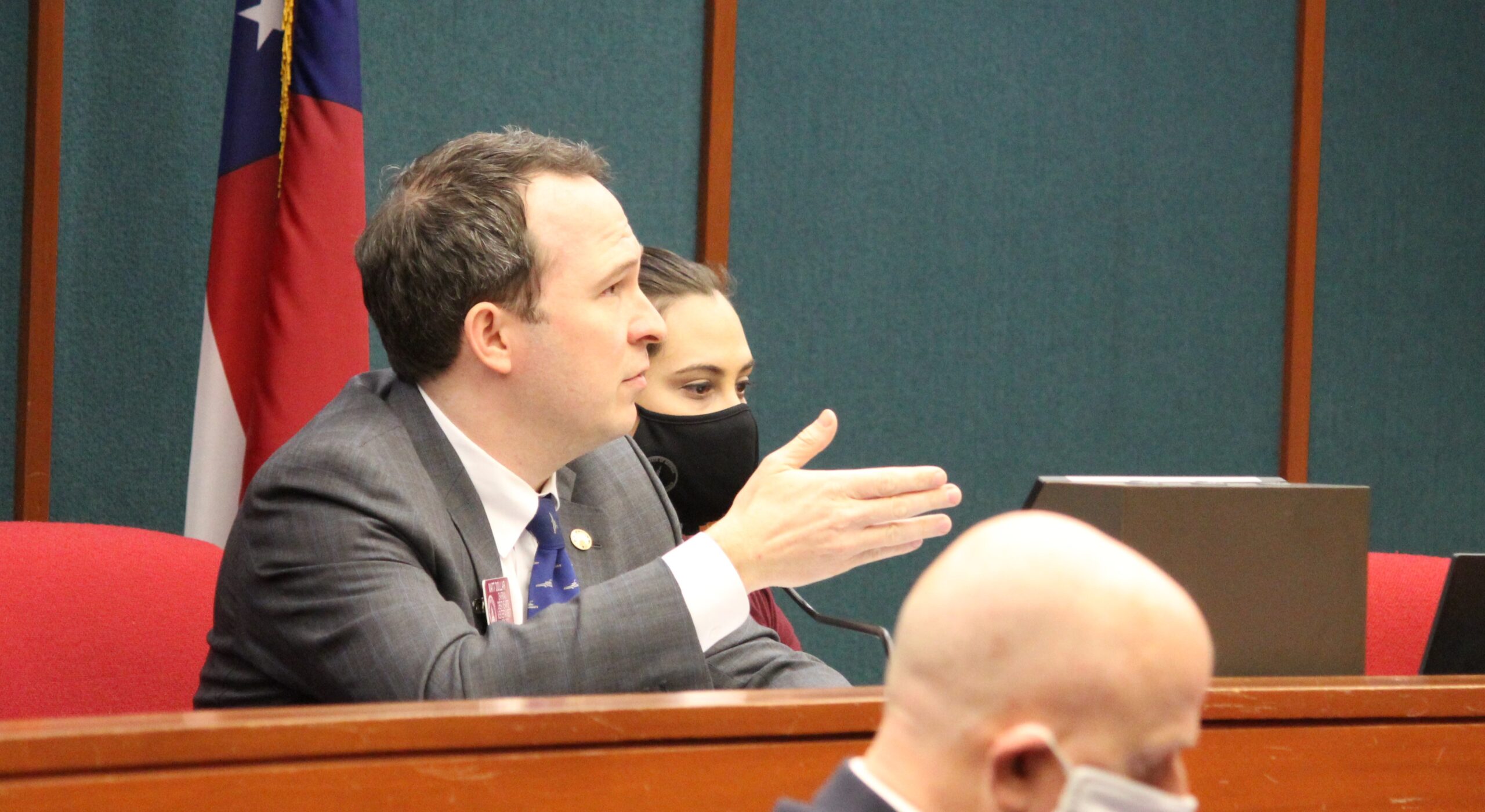Republicans are advancing a redistricting plan for the Georgia Public Service Commission that would prevent a Democratic challenger from running against Republican Commissioner Tim Echols in this year’s election.
The Senate Reapportionment and Redistricting Committee voted 8-3 on Wednesday for Senate Bill 472, which would redraw the utility regulatory body’s five districts. The commission controls how much Georgia Power Co. can charge on electric bills and also regulates private natural gas companies.
Public Service Commissioners are elected by voters statewide, but must live in one of the five districts. Echols, the District 2 Commissioner, is up for reelection to a six-year term this year, while District 3 Commissioner Fitz Johnson, also a Republican, is running for the remaining two years of former Commissioner Chuck Eaton’s term. Gov. Brian Kemp appointed Eaton to a judgeship and named Johnson to replace Eaton.
Democrat Patty Durand of Peachtree Corners in Gwinnett County had filed to challenge Echols, but won’t be able to run if lawmakers approve the new map, because her county will be drawn out of Echols district and into Commissioner Lauren “Bubba” McDonald’s district. Durand can’t move, because candidates must live in their district for a year before November’s election.
Durand told The Associated Press that the major rejiggering of the map leads her to believe she was targeted. A total of 41 of Georgia’s 159 counties would change districts from the current map, including the Savannah and Macon areas and much of northwest Georgia, in addition to Gwinnett. She said lawmakers could have moved as few as six counties to get five districts of roughly 2.1 million people.
“You could have moved six counties, while they did 40 to get to where they did,” Durand said. “That’s why I think I was targeted.”
Senate Majority Leader John Kennedy, a Macon Republican sponsoring the bill, told committee members Wednesday that all five commissioners had consulted on the map and were recommending the new plan.
Commission President Tricia Pridemore, a Marietta Republican, also said all five commissioners “looked at” their districts before the map was introduced. Echols denied that in a text, writing that he was “fine with the old or new map districts.”
“I did not see the map until the day after it was released,” Echols wrote.
Kennedy defended the maps as necessitated by population shifts. Lawmakers have to redraw district lines every 10 years after the U.S. Census.
Residents in Gwinnett County, as well as in 10 middle Georgia counties, including Bibb and Houston, would go 10 years without being able to run for a commission seat under the proposed changes. The middle Georgia counties were drawn into Republican Commissioner Jason Shaw’s District 1. Both Shaw and McDonald won reelection in 2020, meaning their seats won’t be on the ballot until 2026. Echols was last on the ballot in the current District 2 in 2016.
Sen. Nikki Merritt, a Grayson Democrat, said the new map is unfair to Gwinnett voters. She criticized the decision to redraw it as part of a pattern by Republicans, who have also used their legislative majority to intervene and redraw county commission and school board districts in a number of Democratic-majority counties.
“This drawing of the Public Service Commission map went through no process. It’s not transparent, it’s just one senator deciding to take out an opponent for a Republican incumbent,” Merritt said.
Kennedy did not immediately respond to a request for comment made through the state Senate press office.
It’s not clear if new districts will last an entire decade until the next census. A group of Black voters in Fulton County has sued to overturn the system of statewide elections, saying that it unfairly dilutes the votes of African Americans.
The group is asking a judge to order the state to allow only voters of a district to choose their commissioner and to draw at least one majority-Black district. The U.S. Department of Justice joined the suit on behalf of the plaintiffs in June. In a January ruling that mostly favored the plaintiffs, U.S. District Judge Steven Grimberg said the case should go to trial, but no date has been scheduled.
Follow Jeff Amy on Twitter at http://twitter.com/jeffamy.









